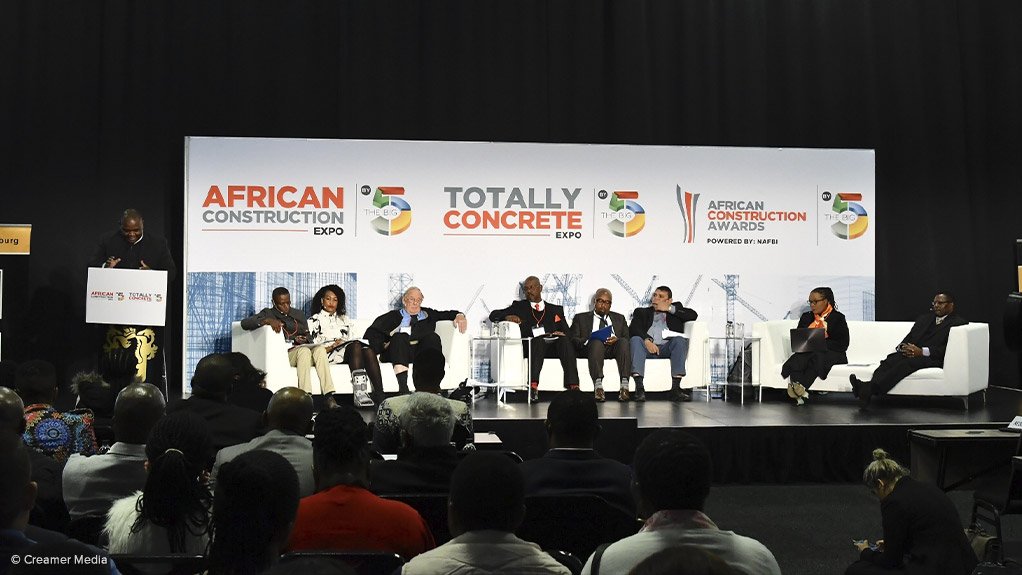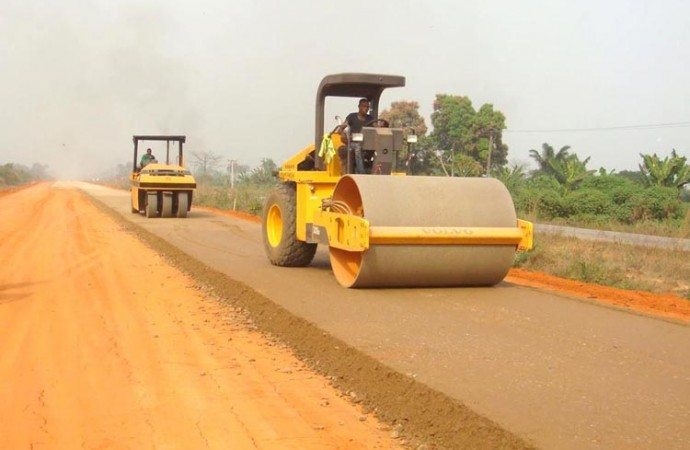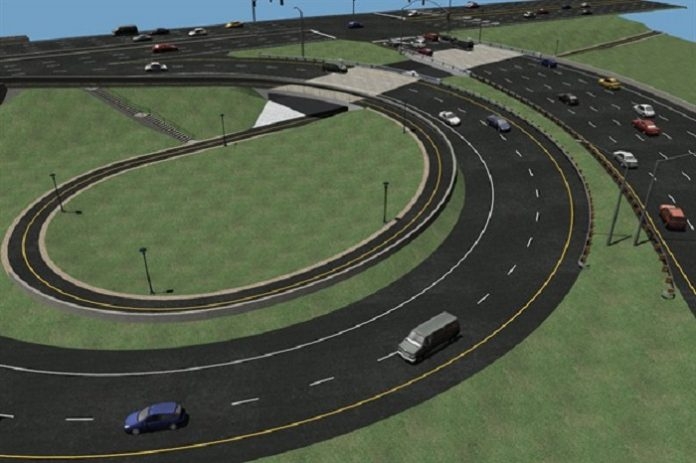
In pursuit of growing the Gauteng economy through public infrastructure projects, Public Transport and Road Infrastructure MEC Jacob Mamabolo on Wednesday said Transnet’s Tambo Springs inland
terminal formed part of the province’s drive to accelerate provincial and
national economic growth.
Mamabolo pointed out that the project, for which the preferred
bidder was announced last week, would raise the province’s economic growth by
1% and the country’s economic growth by 12% over 15 years.
It would also have a R20-billion multiplier impact in the economy over
20 years.
He mentioned during a stakeholder engagement forum at Africa Construction Expo, in Midrand, that
the site handover and construction of the Tambo
Springs project would start in
November.
The terminal would be built around the N3 highway, making transport more efficient and
effective, lowering the cost of transport and subsequently also
the cost of transported goods.
Mamabolo estimated the terminal’s value at R10-billion, which
includes road infrastructure to support the logistics hub.
Further, he said the government was still planning to expand the Gautrain to more areas in a
multibillion-rand public–private partnership transaction that would further
contribute to the province’s economic growth.
He added the expansion would be accompanied by the roll-out of massive
commuter transport networks in the province.
“The Gauteng economy used to boom on the back of goldmining. That economy is gone. To grow the economy,
we need to move above ground, we need to link sectors and move people around,
for which transport is key.”
Meanwhile, the theme of the seventh Africa Construction Expo in 2019 was ‘Transformation
through education’.
National African Federation for the Building Industry
president Aubrey Tshalata remarked that 70% of
work in the construction industry continued to
go to nonblack entities, which highlighted the need for greater transformation
in the sector.
The expo, co-located with the Totally Concrete Expo, brought together
more than 9 000 construction experts and
professionals from all over the African continent. The expo was part of the “Big
Five” construction events where
international, local and continental exhibitors showcased their products and services.
Tshalata said the industry had put more than 6 000 young people
through training, in the form of
apprenticeships, learnerships and short skills programmes. “Education is key to transforming
the construction industry, since
currently many engineers are leaving the country and graduates roam the streets
without employment.”
Tshalata emphasised the importance of considering the Fourth Industrial Revolution in
designing training programmes. “It
requires new skills sets, it brings in new methods of construction, including modular construction methods, as well as green construction methods.
“These skills need to be taught to make the construction sector future proof.”
To achieve a recovery in the construction sector, Tshalata
recommended that more organisations and industry bodies consolidate in an
effort to rescue the industry from decline and ensure it succeeds.
However, South African Forum of Civil Engineering Contractors CEO Webster Mfebe questioned how transformation in the sector could happen
while it was losing jobs.
The sector had shed 142 000 jobs in the first quarter of this year.
“Nearly 100 000 businesses are still at Construction and Industry
Development Board’s entry level, level-one grading. How can this sector
transform if we are trampling over each other’s feet? We are trampling each
other for a piece of the construction cake.”
Meanwhile, there were ever-increasing pressures, such as climate change
and the growth of the population and urbanisation, which had to be considered
during construction planning.
“Cities have grown to need Internet connection technologies and other means to improve
the quality of life, the efficiencyof
urban operations and service delivery and
competitiveness.
“A sustainable city ensures that it meets the needs of present and future generations with respect to economic, social, environmental, as well as cultural aspects. Cities require a happy marriage between people, planet and profit,” Mfebe stated. https://www.engineeringnews.co.za/article/tambo-springs-gautrain-projects-to-help-grow-provinces-economy-2019-06-12
More news
- PART 2: CONCRETE IN THE DESIGN OF A UNIQUE LUXURY HOME IN GEORGE, SOUTH AFRICA
- PART 1: CONCRETE IN THE DESIGN OF A UNIQUE LUXURY HOME IN GEORGE, SOUTH AFRICA
- MVULE GARDENS, AFRICA’S LARGEST 3D-PRINTED AFFORDABLE HOUSING PROJECT
- PART 3: HARNESSING THE POTENTIAL OF HIGH SULPHUR FLY ASH IN CONCRETE PRODUCTION
- PART 2: HARNESSING THE POTENTIAL OF HIGH SULPHUR FLY ASH IN CONCRETE PRODUCTION





